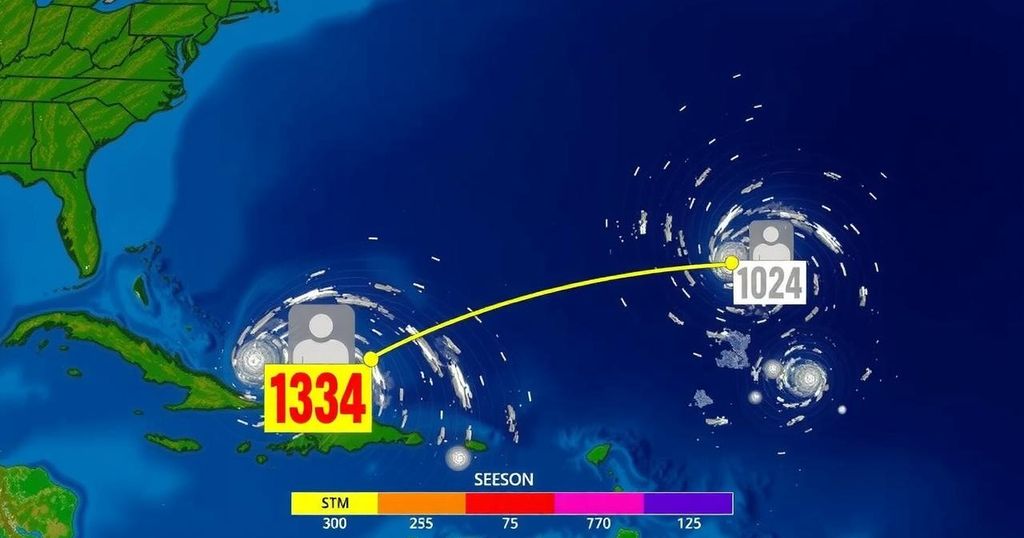2024 Atlantic Hurricane Season: A Record Year in Storm Activity and Forecasting Excellence

The 2024 Atlantic hurricane season, ending November 30, recorded 18 named storms, 11 hurricanes, and 5 major hurricanes. Despite a lull post-September, storm activity surged, notably with Hurricane Milton and Hurricane Helene, which caused significant damage and over 150 fatalities. NOAA’s advancements in forecasting technology contributed to increased prediction accuracy, while Pacific basin activity was below normal this season.
The 2024 Atlantic hurricane season, which concludes on November 30, exhibited significantly higher activity than average, featuring 18 named storms, 11 hurricanes, and five major hurricanes. Notably, this season witnessed a surprising resurgence in storms after a lull in activity during the typical peak period post-September, with 12 storms forming thereafter. Hurricane Milton became the Gulf’s most powerful late-season storm and it was the fastest intensifying hurricane observed this season. Moreover, Hurricane Helene tragically recorded over 150 fatalities and extensive flooding damage. The season’s forecasting was bolstered by advanced NOAA technologies, allowing for the most accurate predictions to date. The eastern and central Pacific hurricane seasons, however, experienced below-normal activity, highlighting regional variability in tropical storm formation. Overall, NOAA’s extensive research, including the usage of advanced aircraft and modeling systems, has enhanced hurricane prediction capabilities, proving crucial for decision-makers and communities in emergency preparation.
The Atlantic hurricane season typically runs from June 1 to November 30, with the peak of activity usually occurring in early September. The season is a critical period for monitoring and forecasting storms that can pose significant threats to coastal and inland communities. Recent years have seen fluctuations in storm activity attributed to various climatic and atmospheric conditions, highlighting the need for robust forecasting and response strategies. NOAA plays a vital role in tracking and predicting these events to mitigate their impacts on society.
The 2024 Atlantic hurricane season demonstrated above-average storm activity, underscoring the significance of advanced forecasting tools and research conducted by NOAA. The season’s notable hurricanes, particularly Milton and Helene, reinforced the ongoing challenges and dangers posed by tropical cyclones. Improved predictive capabilities enabled timely warnings that are crucial for public safety and disaster preparedness. Despite the unpredictable nature of hurricane seasons, NOAA’s commitment to understanding weather patterns remains invaluable in safeguarding communities.
Original Source: www.noaa.gov







